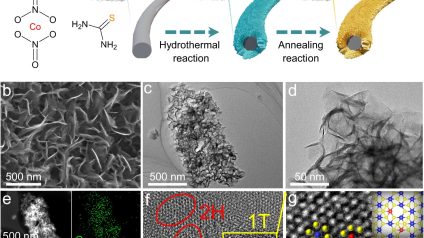The University of Birmingham has managed to obtain new cathodes with high energy density from upcycling of used lithium batteries
Using a 2011 Leaf as a “guinea pig”, obtained an upcycling of lithium batteries that bodes well
– From a process of upcycling of lithium batteries could be born new generation accumulators cheaper but also more performing. The innovation comes from the University of Birmingham, UK, where a team showed how to recycle end-of-life battery waste into materials that can be used for “next generation” cathodes.
The team used the material recovered from electric vehicle batteries to synthesize compounds with a messy rock salt (DRX) structure. This is a promising alternative to the regular layer structure of conventional cathode-ray materials. DRX increases the cathode capacity, allowing the development of lithium batteries with higher energy density.
read also Recycling lithium batteries efficiently and economically is now possible
Researchers, who used a 2011 Nissan Leaf, believe that this is the first time such materials are made from recycled raw materials. “The results of the electrochemical tests showed high performance,” explains the University in a note. This performance would be “comparable to materials prepared with conventional high-purity reagents”.
The test has a very interesting potential to help develop a new generation of batteries. The cathode, in fact, is today the main limit for obtaining high-performance and low-cost lithium-ion accumulators. The challenge is to design cathodes for high-energy-density batteries that retain their characteristics for a large number of charge-discharge cycles.
The research, published in ChemRxiV, is a development of previous work that demonstrates that ascorbic acid (vitamin C) can be used as a leaching agent, replacing hazardous chemicals in cathode recycling. The research team has now demonstrated that the material recycled from a cathode containing lithium manganese oxide (LMO) and nickel-rich “layered” oxide (LO) can be part of an upcycling process in lithium manganese nickel oxide (LMNO).













